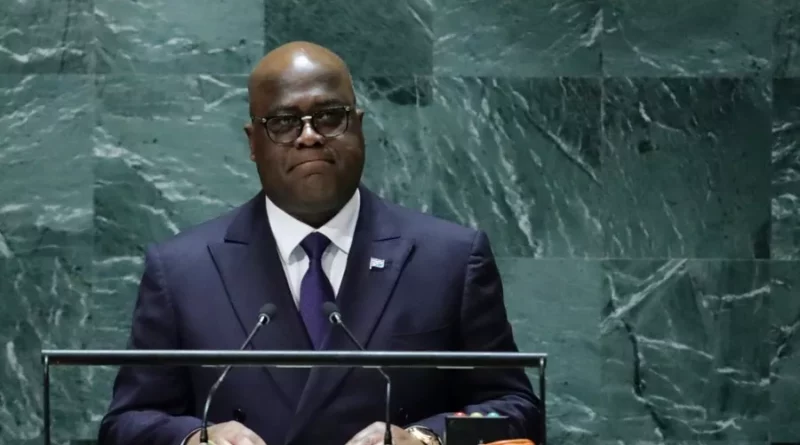DRC: Tshisekedi Continues His Provocative Moves
A Special Mandate Igniting Controversy
In a document obtained through a reliable but confidential source, crucial information reveals that Congolese President Félix-Antoine Tshisekedi is continuing dangerously provocative actions against Rwanda, which could seriously jeopardize long-term peace in the Great Lakes region.
On July 26, 2024, a special mandate was signed by his Chief of Staff, Anthony Nkinzo Kamole, ordering the Democratic Republic of the Congo (DRC) to welcome several Rwandan Hutu figures who had been acquitted or had served their sentences after being tried by the International Criminal Tribunal for Rwanda (ICTR).
Among those concerned are well-known names often associated with the 1994 genocide, such as Innocent Sagahutu and Protais Zigiranyirazo, controversial figures from the former Rwandan regime.
These individuals, currently residing in Niger, have been granted permission to settle in the DRC, a decision that could further escalate tensions with Kigali.
A Direct Provocation Against Kagame
This move is not only a direct provocation toward Rwandan President Paul Kagame but also a sharp break in regional diplomacy, as Tshisekedi has repeatedly asserted that he would support any individual or group capable of destabilizing the Rwandan regime.
A Move That Challenges Regional Stability
This decision by Tshisekedi could prove extremely risky. For months, relations between the DRC and Rwanda have been at an all-time low, primarily due to Kinshasa’s accusations that Kigali supports rebel groups active in eastern DRC, particularly the M23.
In response, Rwanda has consistently denied these accusations while pointing to the DRC’s failure to control Hutu armed forces operating on its territory. By acting in this manner, Tshisekedi sends a clear message: there will be no reconciliation as long as Kagame’s regime remains in power.
The fact that the DRC offers a safe haven to individuals so closely associated with the former Hutu power could provoke violent reactions from Kigali.
Kagame’s Perspective
Paul Kagame considers these former regime members a potential threat to Rwanda’s stability, and their protection by Tshisekedi could be seen as a deliberate attempt to destabilize Rwanda from within.
What Will Kigali’s Response Be?
It is highly likely that Paul Kagame’s regime will not remain silent in the face of this action. The welcoming of these former Hutu officials, who were involved in the genocide against the Tutsis, could be interpreted by Kigali as a hostile act.
What is at stake here is not only the stability of relations between the two countries but also the stability of the entire Great Lakes region. A return to hostilities between Kinshasa and Kigali could have repercussions not just for Rwanda and the DRC, but also for other countries such as Uganda and Burundi, which might be drawn into the conflict.
Tshisekedi is Taking a Big Risk
In making this decision, Félix Tshisekedi seems to be betting on a power struggle with Kigali, even at the risk of regional instability. His open support for controversial Hutu figures marks a significant diplomatic break and raises concerns about the future of relations between the DRC and Rwanda.
A Gamble with Regional Peace
If this move is intended to put pressure on Kagame, it could also isolate Tshisekedi on the international stage, particularly with human rights organizations that closely monitor these developments.
The question that remains is whether this strategy will bear fruit or plunge the Great Lakes region into a new crisis. In any case, it is clear that Félix Tshisekedi is continuing to play a dangerous game that could jeopardize any chance of reconciliation with Rwanda.

